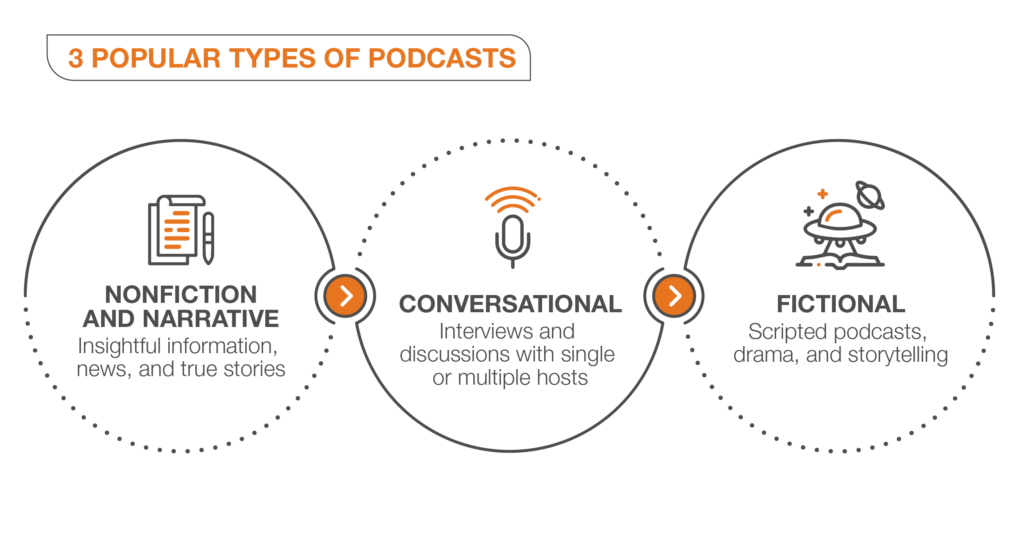Podcasts: Leveraging the power of audio

The dramatic rise of podcasts is resonating across the world, reviving the power of voice communication. A wide variety of creative content, immense interest from celebrities, rising popularity of audio tech devices such as smart speakers, and investments from leading multinational companies have triggered the growth of the industry worldwide.
What are podcasts?
Podcasts can be defined as digital audio files that are made available on the Internet for downloading or listening online. They can be hosted by an individual or a group of people who share different types of on-demand content.
The popularity of podcasts is fueled by 5 key factors:
- Users need not tune in live. They can access podcasts online on their smart devices anytime and from anywhere.
- Podcasts can be created easily if you have a smartphone.
- They make communication personal, establishing a one-on-one relationship with the listener.
- Listeners can cut down their screen time and listen to podcasts even while multitasking.
- You have the freedom to choose which content you want to listen.
To start a podcast, you don’t need to be a technical person. All you have to ensure that you have
good quality microphone or an alternative recording device:
- Choose a topic that you would like to talk about
- Decide on the format of your podcast. Do you want to go with interviews, discussions, or fictional story telling?
- Don’t forget to give your podcast a name
- Record your podcast
- Invest in a reliable editing software
- Select music if you would like to add to your podcast
- Choose a podcast hosting platform and upload
The popular podcast hosting platforms include:
- Google Podcasts
- Apple Podcasts
- Spotify
- Buzzsprout
- Podbean
- RedCircle
How is podcast different from radio?
No, though both the platforms focus on audio content, podcasts cannot be considered an iteration of radio. It must be seen as a fast-emerging new platform which is steadily taking over the media landscape. Let’s see what the major differences between the two mediums are:
- Radio caters to a broader variety of audience at a given time, while podcasts focus on niche audience who are interested in a particular topic.
- A radio programme is either pre-scheduled and aired or is live. If the audience tunes to it in the middle of the show, they miss the beginning. Podcasts are available online always and people can download and listen at any time they want.
- The shelf-life of a radio programme ends as soon as it is aired, and podcasts can stay online forever.
Despite the differences, the two industries can overlap and complement each other when it comes to digital marketing. Companies and brands need to choose between the two according to the type of content and target audience they focus on.
How to make money from podcasts?
The increasing acceptance and popularity of podcasts have been a wakeup call for advertisers and digital marketers. Through podcast advertising, they have been able to reach a large number of people to increase brand awareness, cultivate new leads, and drive sales. And with more and more podcast influencers ready to collaborate with brands, podcast influencer marketing is another sector that is gaining momentum. Just like social media, advertisers can make their target audience hear it from the host of their favourite podcasts.
Businesses of all sizes have started using podcasting as an excellent marketing strategy. It helps create high-quality personalised content and target a niche audience or a large group of people. Now is the time to jump on the bandwagon if you haven’t yet.
If you are looking for podcast writing services, 7G Media is a digital marketing agency in Dubai with a proficient team of content creators who can guide you through the latest trends in the industry and use podcasts as an effective marketing technique for your brand.








